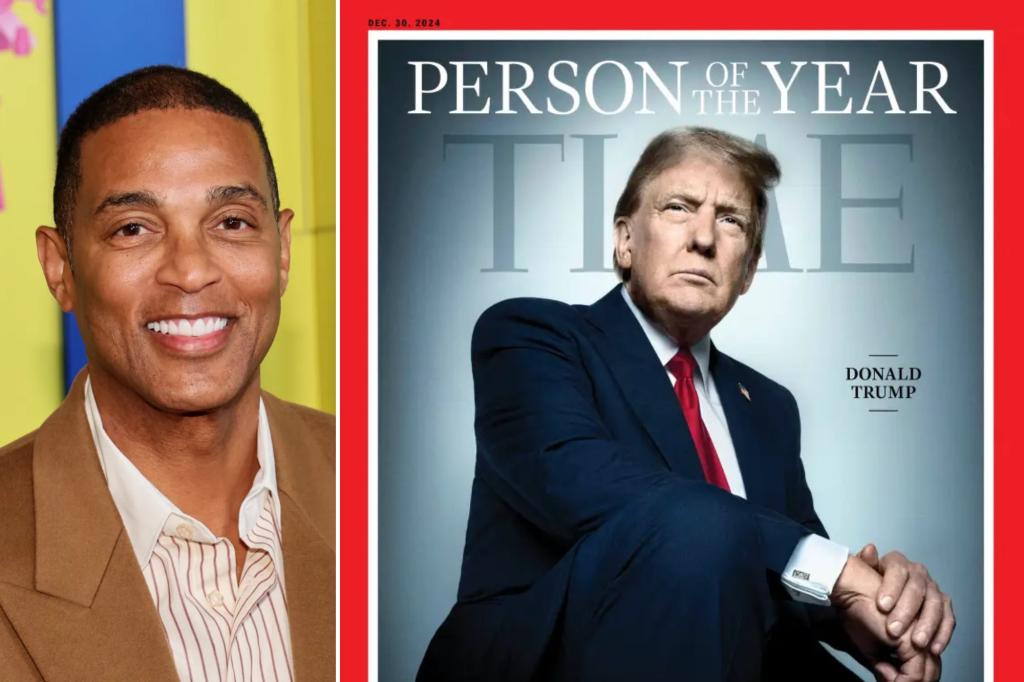Don Lemon’s vehement critique of Time Magazine’s decision to name Donald Trump as Person of the Year for 2024 stems from a fundamental disagreement about the criteria for such an honor. Lemon argues that the award should recognize individuals who embody democratic ideals and contribute positively to society. Trump, in Lemon’s view, represents the antithesis of these values. He cites Trump’s felony convictions, alleged role in inciting an insurrection, attempts to overturn a free and fair election, and accusations of assault as disqualifying factors. For Lemon, honoring someone with such a controversial history undermines the very essence of the award. He questions Time’s editorial judgment, suggesting the decision might be a hoax or a grave miscalculation, highlighting the stark disconnect between his perspective and the magazine’s rationale.
Time Magazine, however, defends its choice by emphasizing Trump’s undeniable impact on the political landscape. They acknowledge his “historic comeback,” his role in “driving a once-in-a-generation political realignment,” and his reshaping of the American presidency and its global role. The magazine’s focus is on Trump’s influence and power, regardless of its ethical implications. This aligns with Time’s historical approach to the Person of the Year title, which has often recognized individuals who have significantly shaped the year’s events, for better or worse. The magazine’s criteria prioritize impact and significance over moral character, a perspective that clashes sharply with Lemon’s.
The controversy surrounding Trump’s selection highlights the inherent tension between recognizing influence and upholding moral standards. Time Magazine’s decision reflects a pragmatic approach, acknowledging the profound impact of Trump’s return to power, regardless of the controversies surrounding his persona. This choice echoes Time’s 2016 decision to name Trump Person of the Year following his initial election victory, a decision similarly met with criticism. The magazine’s consistent stance suggests a deliberate focus on impact over moral judgment, a perspective that continues to fuel debate about the true meaning of this prestigious title.
Lemon’s outrage underscores the deep divisions within American society regarding Trump’s legacy and his place in history. He articulates the concerns of many who view Trump as a threat to democratic values and norms. Lemon’s pointed questions directed at Time Magazine – “What would you say to those women who I guess still read Time Magazine?” – reflect the anxieties and frustrations of a segment of the population deeply troubled by Trump’s actions and the potential consequences of his return to power. This emotional response underscores the broader societal implications of Time’s decision, transforming the award into a lightning rod for ongoing political and cultural debates.
The other finalists for Time’s Person of the Year offer a glimpse into the diverse forces shaping contemporary society. Vice President Kamala Harris represents the ongoing evolution of American politics, while Elon Musk, previously named Person of the Year in 2021, embodies the transformative power of technological innovation. Joe Rogan symbolizes the rising influence of independent media and podcasting, and Benjamin Netanyahu reflects the complex geopolitical dynamics of the Middle East. The inclusion of these figures highlights the breadth of Time’s consideration set and underscores the diverse range of individuals shaping the global narrative.
The juxtaposition of Trump’s selection with the previous year’s honoree, pop star Taylor Swift, further emphasizes the wide spectrum of influence Time Magazine recognizes. Swift’s recognition celebrated her cultural impact and record-breaking “Eras” concert tour, a testament to the power of entertainment and artistic expression. This stark contrast between a controversial political figure and a globally beloved musician underscores the complex and multifaceted nature of Time’s Person of the Year selection process, further highlighting the inherent subjectivity and potential for debate that accompanies this annual tradition.

